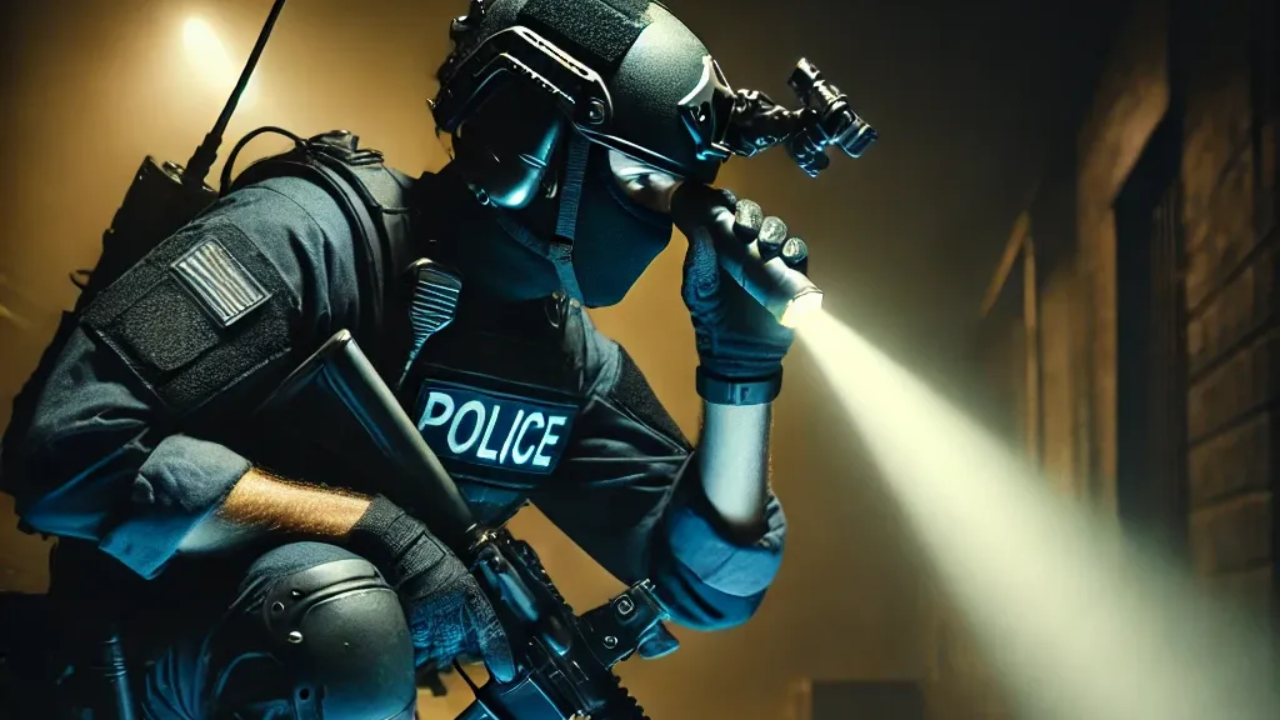
Patrolling at night presents unique challenges for law enforcement officers. Limited visibility, increased criminal activity, and the need for heightened awareness make night patrols a critical skill for police recruits. Mastering night patrol training at the police academy ensures officers can navigate the darkness safely and effectively. Here’s how to excel.
1. Develop Strong Low-Light Observation Skills
Dark environments limit visibility, making it harder to spot threats. Officers must rely on night vision techniques to detect movement and potential dangers.
Tip: Allow your eyes to adjust to darkness before using artificial light, and avoid staring directly at bright lights to maintain night vision.
2. Master Tactical Flashlight Techniques
Using a flashlight improperly can expose an officer’s position or temporarily blind them. Proper techniques ensure safety and effectiveness.
Tip: Use intermittent flashes of light instead of keeping it on constantly, and position the beam away from your direct line of sight to avoid glare.
3. Learn to Read Body Language in Low Visibility
Darkness makes it harder to assess an individual’s demeanor. Officers must rely on subtle movements and voice tone to gauge threats.
Tip: Look for sudden movements, unusual postures, or signs of nervousness that may indicate a threat, even when visibility is low.
4. Practice Silent and Stealthy Movement
Officers on night patrol must avoid unnecessary noise to maintain the element of surprise and reduce detection by suspects.
Tip: Walk heel-to-toe when patrolling on foot, avoid stepping on loose gravel or debris, and keep radio volume low.
5. Train for Vehicle Stops and Encounters in the Dark
Traffic stops and suspect encounters at night increase risk due to limited visibility and heightened suspect unpredictability.
Tip: Position your patrol car’s spotlight behind the suspect vehicle to avoid blinding yourself while illuminating potential threats.
Final Thoughts
Excelling in night patrol training requires heightened awareness, low-light adaptation, and tactical movement. Officers who master these skills can conduct safer and more effective night operations.
For more law enforcement training tips, visit www.armoganct.com.
Best,
Barbara
Armogan Training Team
Police Candidate Getting Started Workshop
Learn about every phase of the hiring process!!!
-Plus hidden BONUSES!!!
We hate SPAM. We will never sell your information, for any reason.
